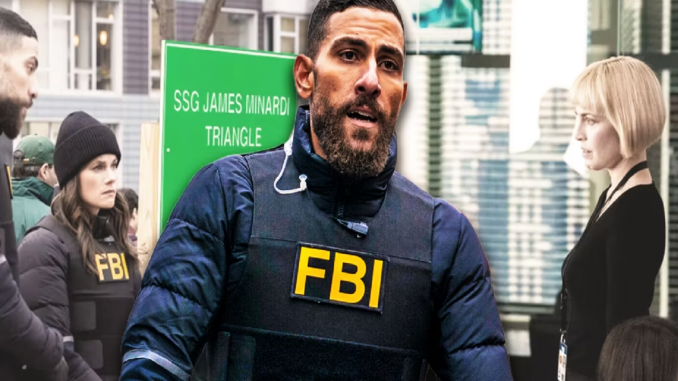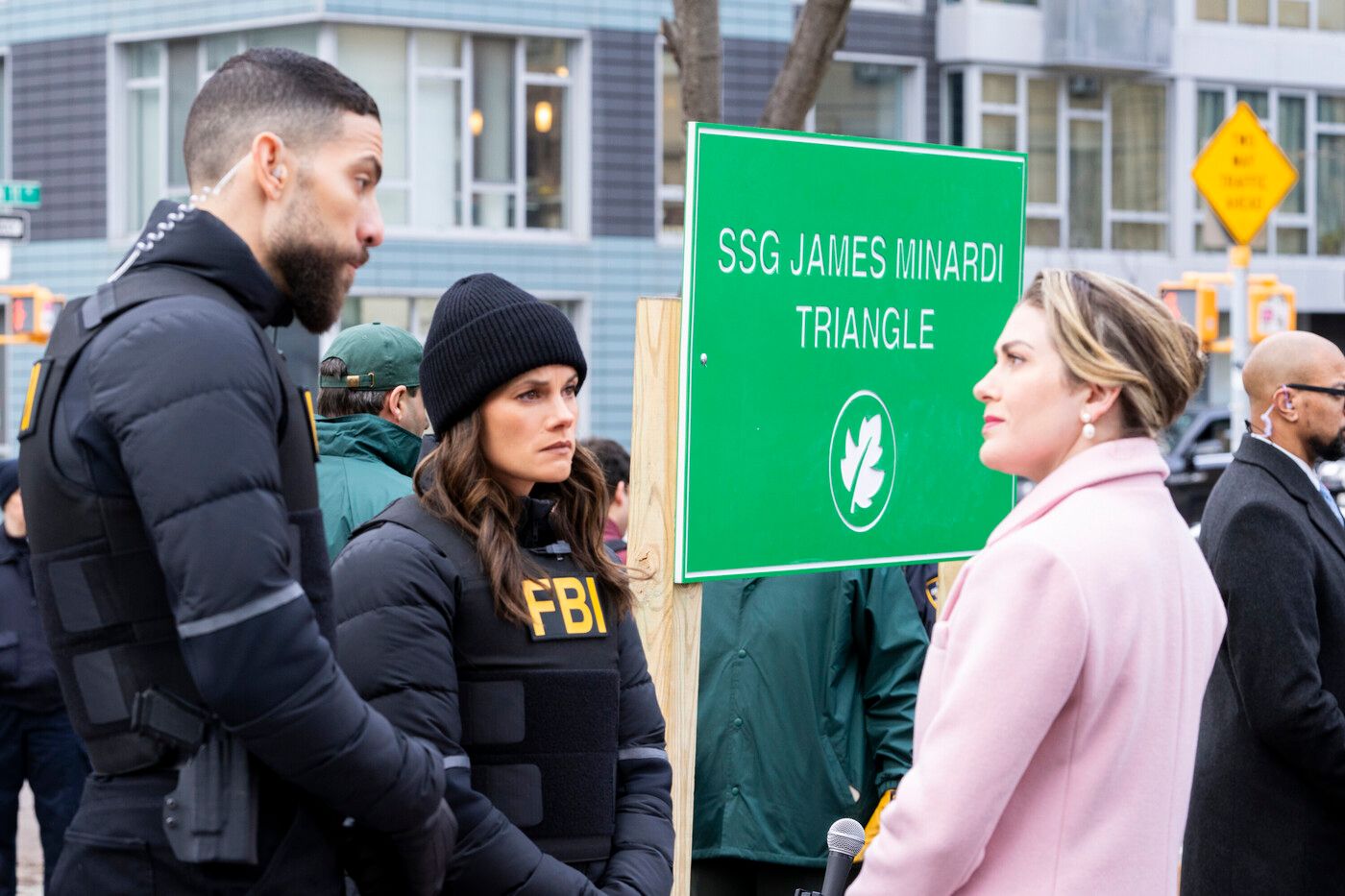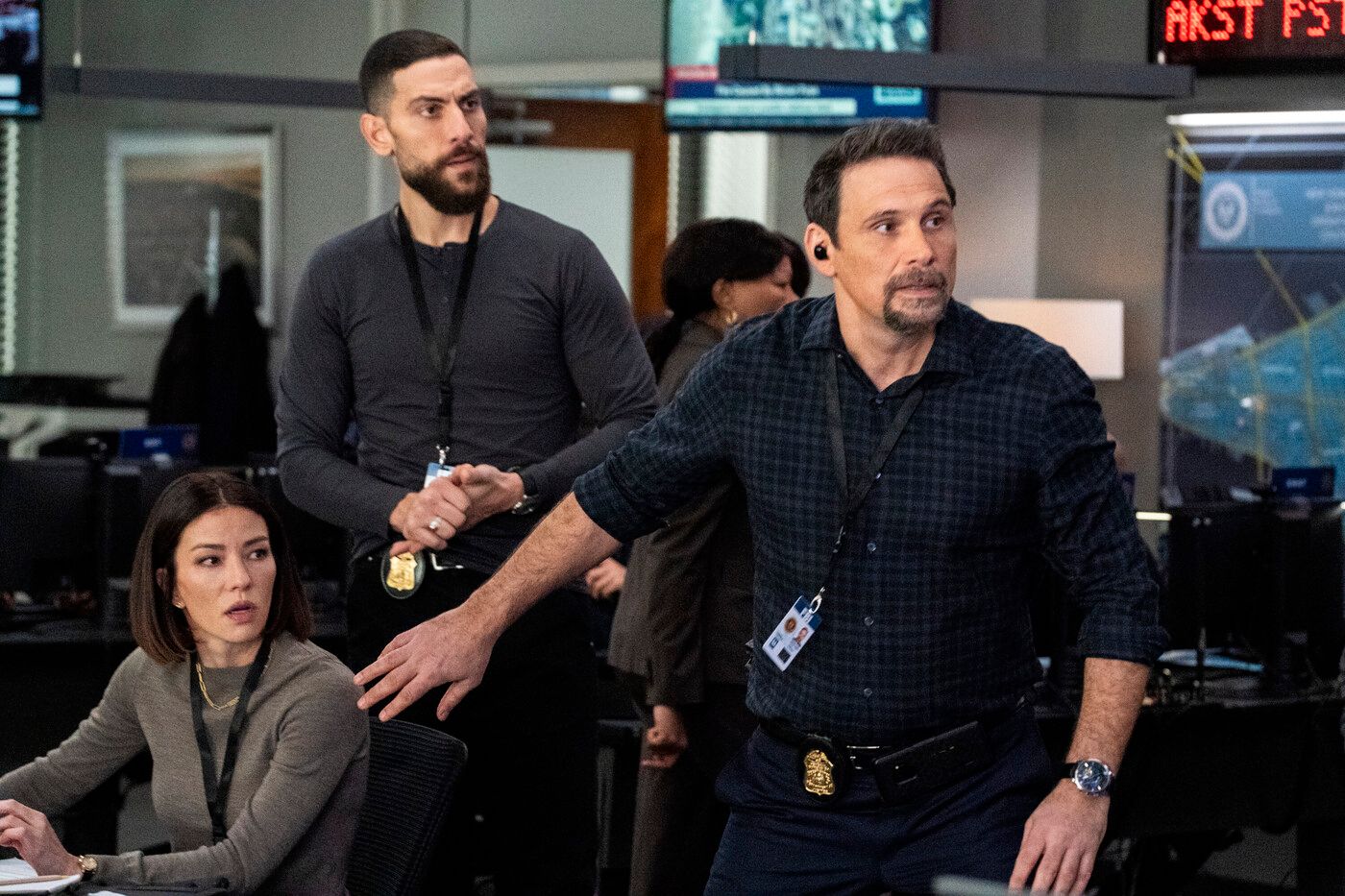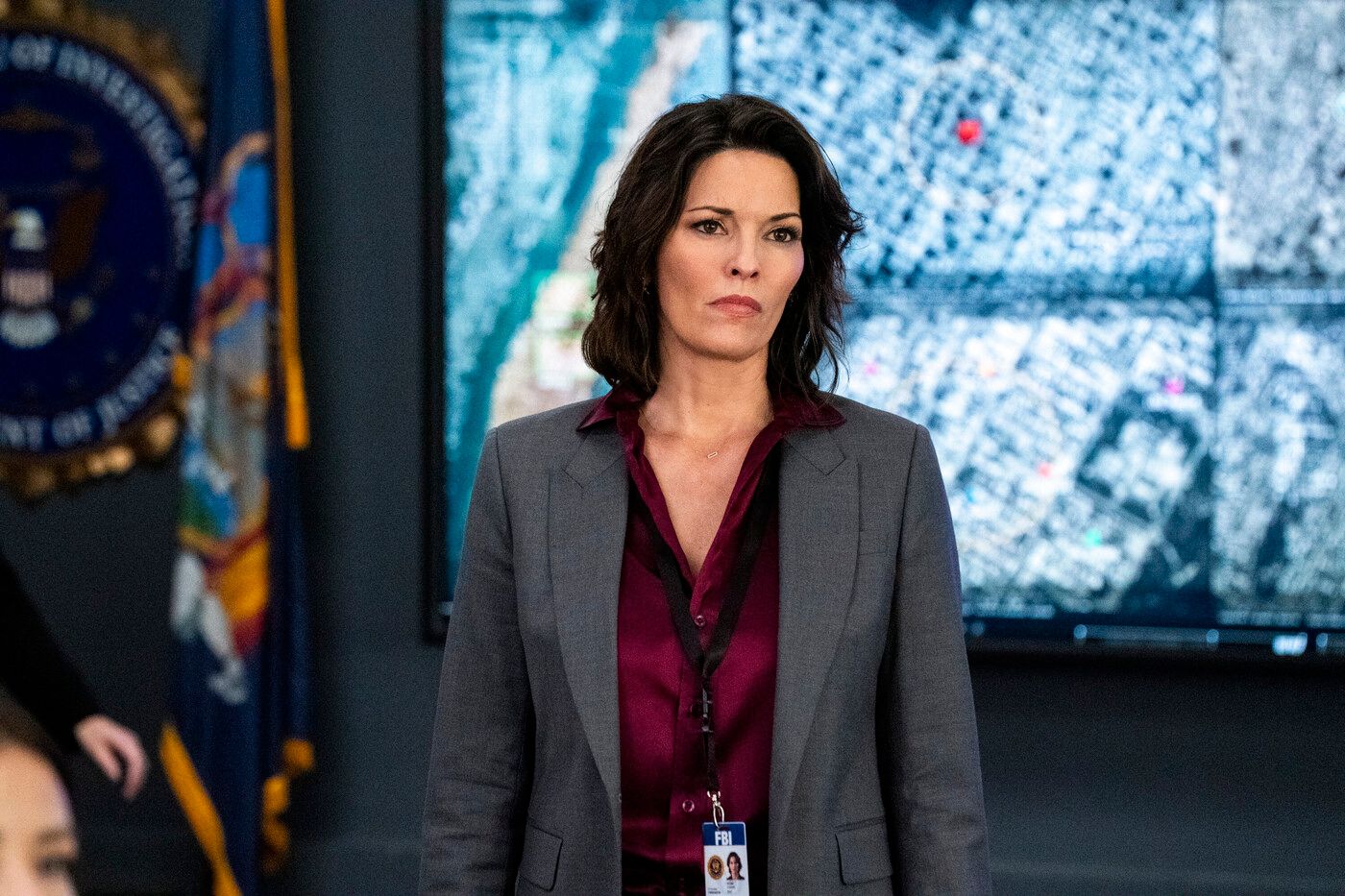
Of Dick Wolf’s TV franchises, the trilogy of FBI shows has flown relatively under the radar. The CBS dramas aren’t household names like the Law & Order and One Chicago series have become. But FBI has delivered some of the most consistently impressive acting, carrying its plots across any bumps in the road. That’s the case with FBI Season 6, Episode 4, “Creating a Monster,” which fairly telegraphs its story — yet by doing so, it provides an effective showcase for the character of OA Zidan.
“Creating a Monster” borrows a classic Law & Order conundrum and gives it to OA. The veteran agent finds himself investigating the Muslim community when a federal judge is murdered, and this naturally causes conflict between his professional identity and his personal one. What happens along the way does include a handful of TV crime drama tropes. But the episode rises above those because of the strength of Zeeko Zaki’s performance, and the different way FBI handles the message than Law & Order did in 1990.
FBI Tests OA’s Commitment to His Career
Season 6, Episode 4 Gives Him Plenty of Problems
From the first post-title scene, everything about FBI Season 6, Episode 4 is designed to put the screws to OA. It begins when the sole witness to federal judge Charles Pollan’s murder tells OA and Maggie Bell that the killer had an accent “like a terrorist would have” — the first of a few one-dimensional guest characters. OA naturally points out how ridiculous that statement is, and when the line of questioning quickly confirms that the perpetrator is connected to the Muslim community, the audience knows where the story is headed. It’s an episode that’s going to mix OA’s law enforcement career with his own background and see what comes out. This isn’t the first time FBI has broached the subject of OA’s faith, but it’s the most on the nose.
The writing of the episode has several flaws, particularly in its characterization. But Zeeko Zaki continues to show why he’s one of the best actors in the Wolf Entertainment stable and how he’s made OA into one of TV’s best law enforcement characters. Even when OA is in the most obvious of situations, Zaki never over-dramatizes a moment; he carries himself with restraint and provides just enough internal tension. He gets OA where the script wants the character to go, but is able to do so in a way that feels authentic and earned. And throughout “Creating a Monster,” OA remains a character whom the audience can not just root for, but look up to. He might be having a very difficult couple of days, but he never crosses any lines or does anything purely for dramatic tension. His biggest mistake is cutting the agent who does make several huge errors a little too much slack. That clear through-line for OA is what makes him so interesting to watch. The viewer always knows who he is; he doesn’t change just to serve a particular story, even when it’s his own.
OA Zidan: There’s no game, buddy. I’m just doing my job.
One surprising disappointment, however, is the episode doesn’t give much room to OA’s friendship with Maggie. Perhaps this is intentional in order to up the pressure on OA, but the partners only have two real beats together; in one moment, Maggie tells OA to get his head in the case — which contrasts how everyone gave Tiffany Wallace leeway in FBI Season 6, Episode 8. That’s somewhat understandable since Tiffany was dealing with the death of another agent, but it’s still surprising that there’s not more of a check-in between Maggie and OA, who are so close. Even the final scene, in which Maggie tries to lift OA’s spirits, is not the full-fledged supportive moment between partners that would have been a perfect button to the episode. It’s charming and it tries, but it barely scratches the surface of their friendship.
FBI Season 6, Episode 4 Oversimplifies Its Guest Characters
The Supporting Players Become Stereotypical
What Zeeko Zaki is able to do with OA over the course of “Creating a Monster” stands out more because of how incredibly underdeveloped the guest characters. Almost all of them, save Maggie’s old friend and colleague Jessica Blake, are predictable in what they say and how they fit into the episode. From the aforementioned witness (even more annoying because he’s an Assistant District Attorney!) to the teenaged suspect who’s been radicalized, everyone has a specific function and little more than that. One scene in which Maggie and OA question a restaurant employee is particularly stereotypical, from the employee being immediately belligerent to Maggie getting equally aggressive with him. It’s a scene that would fit better among the tropes of Chicago P.D. than on FBI.
The major player is Hassan Khalil, an FBI agent who’s been working undercover at the Islamic community center, who is also Muslim. The character is clearly meant to be opposite to OA in nearly every way possible and to challenge OA’s belief system in every sense of that phrase. In one of their early meetings, Hassan makes a comment to OA about knowing how to “play the game,” which OA immediately rebuts. Hassan delivers the message of “Creating a Monster” when it becomes clear that he radicalized the suspect in an attempt to get to the higher-ups on the terrorist food chain. There’s a back and forth of Hassan pleading with OA not to sell him out, but also not really being that sorry for his own actions — even after he shoots the suspect to save OA’s life. The script tries to engender sympathy for Hassan because he claims he has to work harder being a Muslim agent, but King of the Hill addressed cultural pressures much better with Kahn. FBI delivers a character who’s so much of a mess that the audience never connects with him, so they never feel for him either.
Jessica is the one character who gets out of this somewhat unscathed, though that might also be because she doesn’t have an awful lot to do. There’s plenty of joy in seeing a reunion between Missy Peregym and Charlotte Sullivan, who starred together in the underrated Canadian TV series Rookie Blue. Wolf aficionados will also recognize Sullivan from her work on Law & Order: Organized Crime and Chicago Fire. But she’s largely on the sidelines due to the focus on OA and Hassan. “Creating a Monster” never develops anyone enough to create the deep thoughts that it wants to provoke.
Is FBI Season 6, Episode 4 Worth Watching Again?
OA’s Story Arc Still Has Plenty to Offer
FBI Season 6, Episode 4 may not be as deep or complicated as it wants to be, but that doesn’t mean it lacks value. Zeeko Zaki’s work and the story arc that OA goes on are worth the time, even if the story around that isn’t fully fleshed out. It’s reminiscent of Law & Order Season 1, Episode 11, “Out of the Half-Light,” in which Ben Stone told underrated Assistant District Attorney Paul Robinette that he’d have to decide if he was a lawyer who was Black, or a Black man who was a lawyer. In FBI, OA answers his version of that question directly in talking to Hassan:
OA Zidan: I’m an FBI agent, not a Muslim FBI agent.
This is completely different from how Law & Order handled Robinette’s quandary, with the caveat being that actor Richard Brooks was let go from the series at the end of Season 3. He returned as a guest star, however, with Robinette having become a defense attorney. Robinette told Stone’s successor Jack McCoy in Law & Order Season 6, Episode 14, “Custody” that “All those years I thought I was the former. All those years I was wrong.” It was, in some ways, a heel turn for a character who never got fully developed in the first place.
Decades later, OA is given the ability to put his career first without sacrificing his identity as a Muslim. It’s not an either-or with him the way it was for Robinette. His dedication to his job doesn’t make him any less of a Muslim — or any less of anything, as his other conflict with girlfriend Gemma indicates. She becomes upset with him for asking if she’s using drugs, to which he points out that as an FBI agent, he can’t have a significant other who’s on cocaine. It’s a lose-lose argument but he’s absolutely right to ask and the script doesn’t put him down for doing so or for any of the choices that he makes. There are no qualifiers, no exceptions, and it’s certainly not easy but OA Zidan is able to be who he wants to be. That’s what makes FBI Season 6, Episode 4 matter: its story isn’t perfect, but it still has meaning for both OA and the audience.





